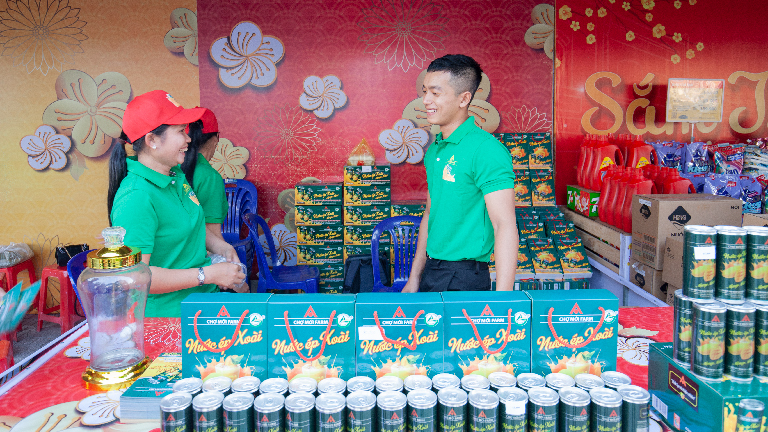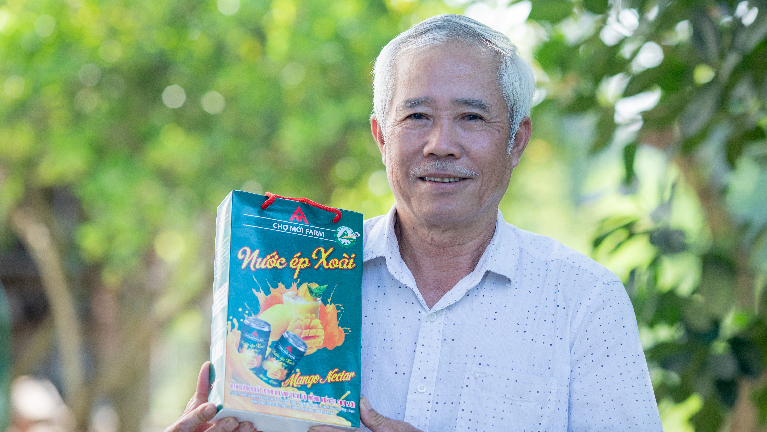Project document
Expansion of agricultural cooperative in rural Viet Nam creates local jobs to prevent child labour
Child labour prevention Project in Viet Nam supports the expansion of a farming cooperative to produce mango juice, providing livelihood opportunities for local families with children engaged in or at risk of child labour.

The farming cooperative, which used to focus on rice cultivation, has now expanded into a lucrative mango juice-processing venture. This expansion was initiated through the US Department of Labour funded ILO Project, Enhancing National Capacity to Prevent and reduce Child Labour in Viet Nam (ENHANCE).
Working in partnership with The Center for Technology Transfer and Services (CTTS) at Can Tho University and alongside local Government officials, the Project is implementing a range of livelihood interventions in An Giang. The aim is to stimulate income-generating opportunities for local households in order to reduce the risk of child labour.
Providing livelihood support for vulnerable families is critical to addressing the root causes of child labour and a key prevention strategy promoted by the ILO. For households facing financial hardship and lacking adequate social protection, child labour is a common coping strategy, which often prevents children from attending school and gaining the necessary skills to access decent work in the future.
The ILO ENHANCE Project has been working to address this issue in An Giang. Livelihood interventions in the region were informed by the findings of a value chain analysis in target localities, which identified agricultural products with potential for expansion. The goal is to add value to locally produced crops and find a profitable use for surplus agricultural products. This avoids wasting or selling the crops at unsustainably low prices and facilitates decent employment opportunities for local households.
The introduction of the mango juice processing facility in Choi Moi has been particularly successful in this regard. According to Ban, the venture has specifically benefited disadvantaged families with working children. “I hope that local families will be able to enhance their incomes so that they can send their children to school”, Ban expresses. “So far, ten local people with children in child labour have been hired and we hope to eventually expand these benefits to more community members in need”, he goes on.
Following eight months of technical support from CTTS, mango juice production began in October 2019 and by the end of January 2020, 6,000 cans and 200 bottles of mango juice had been produced and sold by the cooperative.
According to Ban, the technical assistance provided by CTTS has been invaluable and is far more sustainable than financial backing alone. During eight months of learning by doing, cooperative members acquired techniques for processing the product and operating the machinery. Ban is now confident that the cooperative will be able to maintain production independently. In addition to training on production techniques, CTTS has also provided marketing support to the cooperative through assistance with packaging and promotion.

As the cooperative continues to develop and more local jobs are created, priority will continue to be given to families with children engaged in or at risk of child labour. This will ensure that struggling parents in the community can afford to prioritize education for their children.
“It is very important that children attend school, because children are the future. When parents have higher incomes, this is possible, and their children can go on to help their families and communities as adults”, Ban stresses.